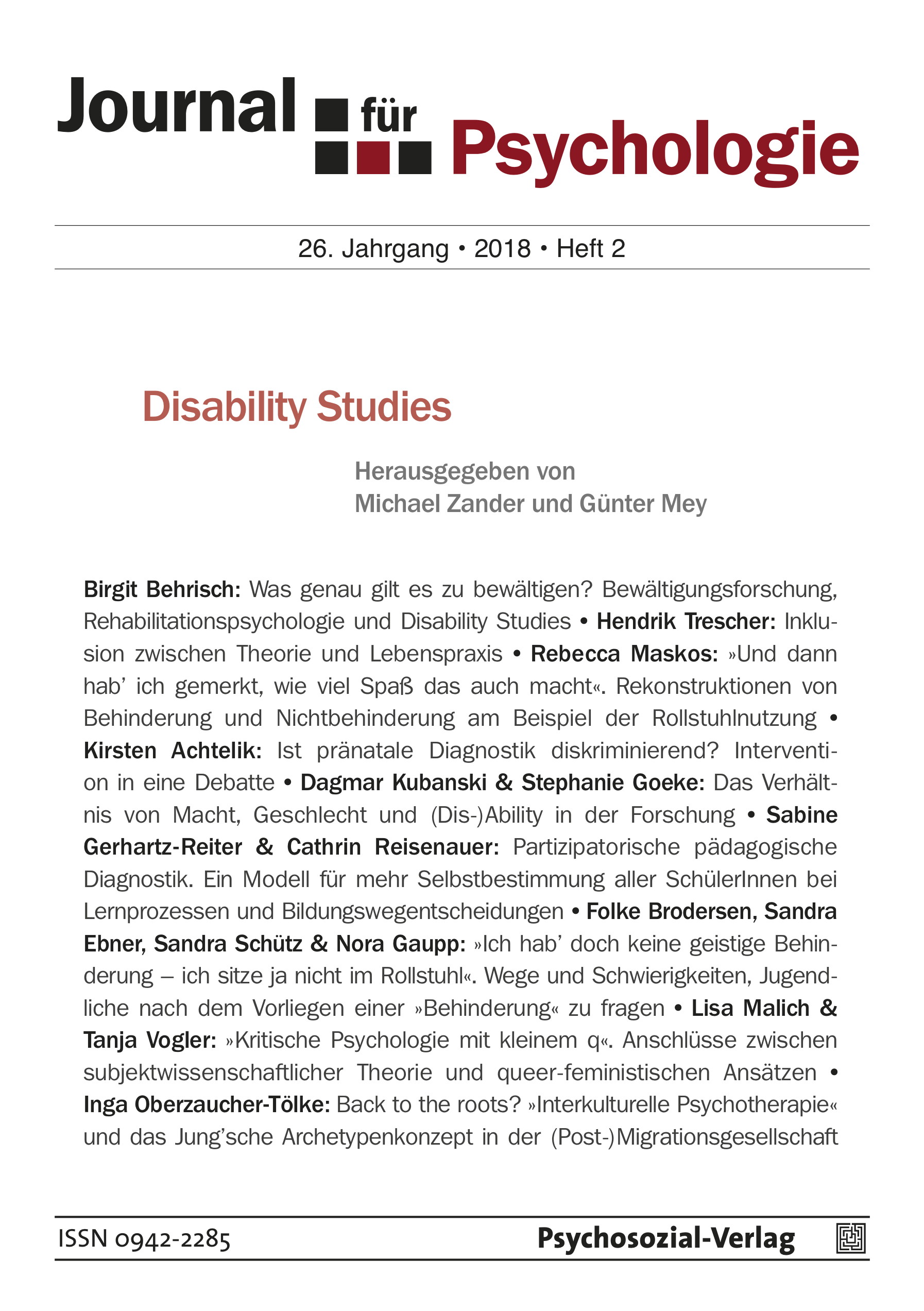»Kritische Psychologie mit kleinem q«
DOI:
https://doi.org/10.30820/8248.09Keywords:
Critical Psychology, Queer Theory, Feminism, Subject-science, theory, New Materialism, Discourse TheoryAbstract
This paper aims at connecting the Berlin school of Critical psychology with queer-feminist theories by focusing on the concept of the analysis of conditions-meanings-justifications (Bedingungs-Bedeutungs-Begründungsanalyse, BBBA). To this end, we will firstly exemplify basic aspects of the BBBA-concept, which forms an important analytical tool of Critical psychology. Secondly, we will present possible connecting lines to queer-feminist approaches. In so doing, we will argue that the concept of conditions offers links to feminist theories of New Materialism and critical economy. The concept of meaning contains parallels to the Foucauldian concept of discourse, which is central to many queer-feminist approaches. In turn, justification-analysis provides an opportunity to understand why subjects who live in similar material conditions and social constellations of meaning behave differently. The example of single mothers serves to illustrate the facets of the BBBA-concept and the conditions-meanings-justifications-analysis. In this way, we want to emphasize the potential of Critical psychology for queer feminist approaches.Downloads
Published
2018-11-21
How to Cite
Malich, Lisa, and Tanja Vogler. 2018. “»Kritische Psychologie Mit Kleinem Q«”. Journal für Psychologie 26 (2):160-83. https://doi.org/10.30820/8248.09.
Issue
Section
Freie Beiträge
License
This license allows private use and unmodified distribution, but prohibits editing and commercial use (further information can be found at: https://creativecommons.org/licenses/by-nc-nd/4.0/).
The terms of the Creative Commons licence only apply to the original material. The reuse of material from other sources (marked with a reference) such as charts, illustrations, photos and text extracts may require further permission for use from the respective copyrights holder.



